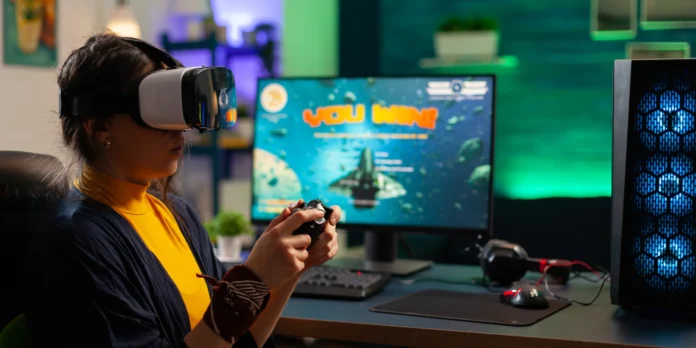Gone are the days when game promotions were limited to simple ads and flyers. The digital landscape has evolved, and with it, the ways in which game developers engage with their audience.
Today, promotions are more immersive, interactive, and tailored to individual players due to data analytics, social media, and real-time engagement tools. Let’s dive into the ways these technologies are transforming digital gaming promotions.
Impact of Mobile Gaming
The rise of mobile gaming has opened up new opportunities for digital promotions. Mobile games reach players directly on their devices, which creates a unique chance to run targeted, on-the-go campaigns.
Mobile apps also help enhance real-time engagement through push notifications. Developers can send out timely offers, event reminders, or exclusive deals to players, creating a seamless experience that keeps them updated.
For instance, a player who receives a notification about a $1,000 back casino bonus is about to take advantage of the offer before it expires.
Personalised Promotions
Game developers gather insights on player behavior, preferences, and in-game activity using data analytics. Tracking factors like previous purchases, playtime, and interactions allows them to create promotions that are tailored to each player’s unique habits and interests.
A player who regularly participates in specific events may receive offers related to similar in-game experiences or discounts on items they’ve shown interest in. This ensures the promotions feel relevant and engaging.
Take FanDuel, for example. FanDuel Casino promotions often use player data to personalize offers, ensuring that each promotion aligns with an individual’s gaming habits and preferences, making the experience feel more relevant and rewarding. This personalization also promotes greater excitement for the game.
Targeted offers that match a player’s preferences encourage them to take part in promotions that are relevant to them, while continuous adjustment of campaigns based on player responses helps keep the content fresh and appealing. As a result, developers can foster stronger player loyalty, driving long-term success and deeper connections with their audience.
Gamified Loyalty Programs
Gamified loyalty programs turn promotional offers into interactive experiences. Instead of simply offering rewards or discounts, these programs encourage players to participate in challenges, earn points, and level up through their in-game activities.
Players are rewarded for completing tasks or reaching milestones, which makes the promotional experience feel like part of the game itself. This integration of rewards with gameplay adds an element of fun and competition.
Players can return to the game to complete new challenges or unlock additional rewards, which adds to the thrill of the experience. Achieving milestones within the loyalty program provides a sense of accomplishment, which strengthens the connection between players and the game. When players share their achievements and compete for rewards, a sense of community develops, further motivating them to stay engaged and active.
Social Media Integration and Influencer Marketing
Game developers integrate social media into their promotional strategies to reach players where they spend a significant amount of time. Through platforms like Instagram, Twitter, and TikTok, developers create content that promotes new campaigns, updates, or special offers. These posts often include calls to action, encouraging players to engage with the promotion, participate in challenges, or share their experiences.
Influencer marketing takes this a step further by tapping into the established communities of popular streamers and content creators. Developers partner with influencers whose followers trust their opinions. These influencers promote the game and its promotions in an organic way, typically through gameplay, streams, or dedicated posts. Players trust the endorsement of influencers they admire and relate to, and the influencers help players find games they will enjoy through helpful guides.
Real-Time Engagement Through Live Streaming and Events
In addition to social media marketing, game developers use live streaming platforms like Twitch and YouTube Gaming to host events that engage players in real-time. These events can include live gameplay sessions, special in-game challenges, or developer interactions.
Players can join these events by watching or participating in live streams, where they may take part in challenges, earn rewards, or unlock exclusive content as the event unfolds.
During these live events, developers communicate directly with players, responding to comments, answering questions, or providing instant updates. The interaction creates a sense of urgency and excitement, encouraging players to participate.
Player engagement with the content strengthens their connection to the games they enjoy. This deeper involvement increases the thrill players experience during play, which heightens the overall experience.
The New Age of Gaming Promotions
Digital gaming promotions are now personalized, immersive, and real-time. Data analytics allows developers to offer tailored experiences that resonate with individual players. Mobile gaming, live streaming, and influencer marketing provide unique ways to engage players, creating ongoing, interactive relationships.
These innovations not only enhance player experiences but also foster greater loyalty, driving long-term success for developers in an increasingly competitive market.


